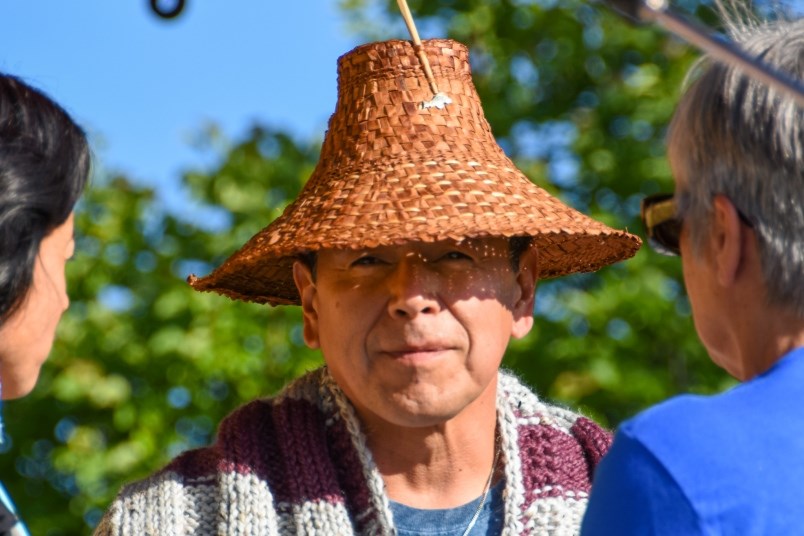A major Kwikwetlem First Nation (KFN) land claim is in the process of being significantly rewritten after the nation filed to drop Port Coquitlam-managed lands from the claim.
The decision to drop the Port Coquitlam section of the claim is the latest step in a long-fought effort by KFN to wrest control of several stretches of land currently under municipal, Metro Vancouver and provincial control. It also comes at a time when the nation struggles to manage the cost of litigation a year away from the trial date.
The original land claim, filed four years ago this month, covers a fraction of Kwikwetlem’s ancestral territory, which once included the Coquitlam watershed and surrounding lands.
Today, that watershed land is held by BC Hydro as part of the Coquitlam reservoir, but also includes the urban centres of Coquitlam and Port Coquitlam, according to court documents. KFN currently holds 84.5 hectares of land across two reserves at the mouth of the Coquitlam River near Colony Farm Regional Park.
The claim looks to add to that land base to include that park, which is managed by Metro Vancouver; the Colony Farm Forensic Psychiatric Institute lands; and Riverview Hospital lands, both managed by the province; plus several tracts of land on the west bank of the Coquitlam River surrounding Port Coquitlam's Gates Park, a busy park that hosts hundreds of soccer, baseball, softball and field lacrosse games every year and is a destination for walkers and cyclists.
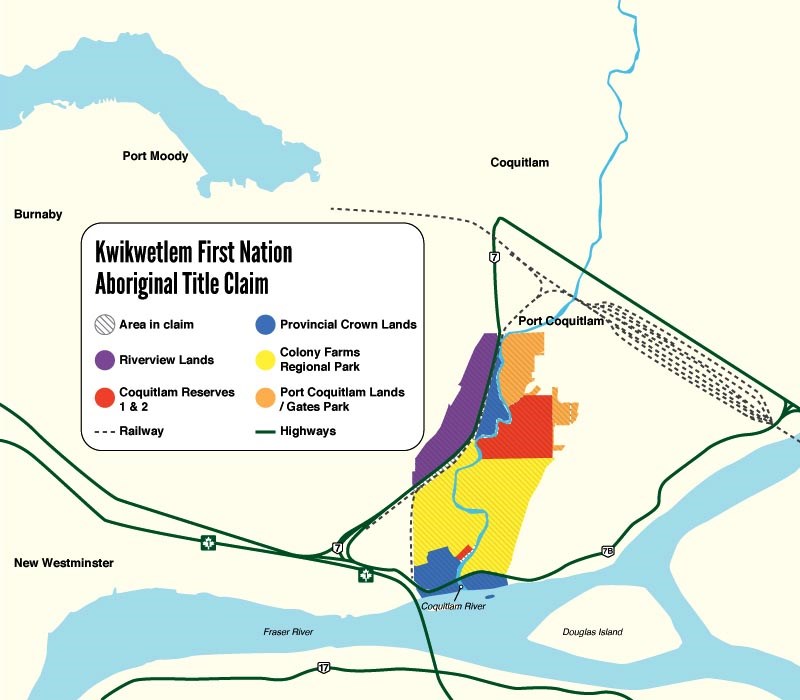
KFN filed for discontinuance of the PoCo land claim about two weeks ago in response to a pressing need to negotiate a service agreement with the city that would provide a utility hook-up between Port Coquitlam and the KFN business park.
So far, none of the other parties, including the city of Port Coquitlam, have responded to KFN’s application, according to Hall.
And in an email to The Tri-City News, the city of Port Coquitlam refused to comment, saying the matter is still before the courts.
Both sides are scheduled to negotiate before a judge sometime in March.
The KFN declarations of Aboriginal title were first brought to courts by former chief Ronald Giesbrecht on behalf of the Kwikwetlem's roughly 100 members.
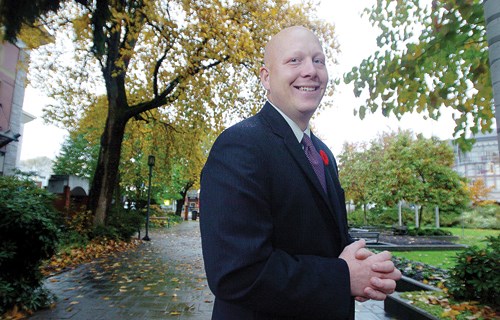
Aboriginal title claims can include both specific settlement sites and tracts of land regularly used for hunting, fishing or exploiting resources at the time European settlers asserted sovereignty over the land.
As a relatively small First Nation with little land, KFN had pinned much of its economic success on a business park on the reserve known as IR2. The plan calls for a suite of commercial and industrial spaces all centred around a wellness centre to serve its members.
"The health centre will create hundreds of jobs but we don’t have hundreds of people qualified for that. Ten or 12 years down the road, it could be creating thousands of jobs,” Chief Hall told The Tri-City News, pointing to one of many potential economic benefits for the surrounding area.
None of that can get off the ground, however, until a service agreement is signed with the city of Port Coquitlam. Without that hook-up, the land remains without such necessities as water, sewer, transit and emergency services.
“We want to grow our local economy, be successful partners with our neighbours and unlock the enormous economic potential of our lands, but for some reason the city of Port Coquitlam wishes to block us,” former chief Giesbrecht wrote provincial Finance Minister Carole James in a 2019 letter asking the province to ensure the city was complying with its legal obligations.
The province did not respond to the letter, according to Hall’s affidavit.
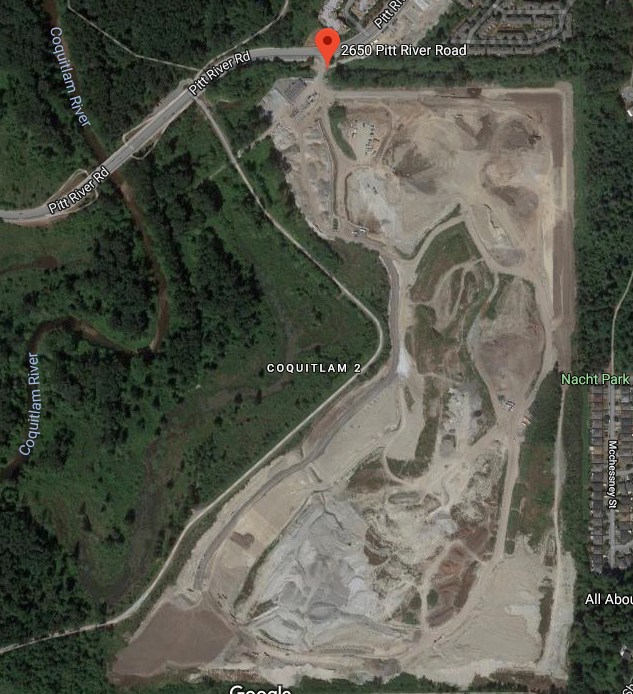
The current impasse, according to the most recent application, stems from the time of the original title claim was filed in 2016. Back then, KFN was already in discussions with the city regarding the service agreement. As soon as the title claim was filed, the document states, Moore left a voicemail for Giesbrecht indicating that if the title claim continued, the city wouldn’t have the resources to negotiate the service agreement for the business park.
Now, citing mounting legal costs and continued delay in the development of the business park, KFN acquiesced, filing to drop Port Coquitlam from the claim in its filing two weeks ago, around the same time a Supreme Court justice denied the province's application to have Canada added as a party to the land claim. That, according to Hall, represented a significant win for KFN as adding Canada would have greatly expanded the scope and cost of future litigation.
But according to Hall’s affidavit, Port Coquitlam has refused to accept KFN’s filing to drop the city from the land claim without “assurances” the First Nation will never file a future land claim against the city.
"As current council and leadership, we can’t sign off on any future people’s rights that belong to this nation,” Hall said in an interview. "When we’re long gone, they have every right to file a title claim."
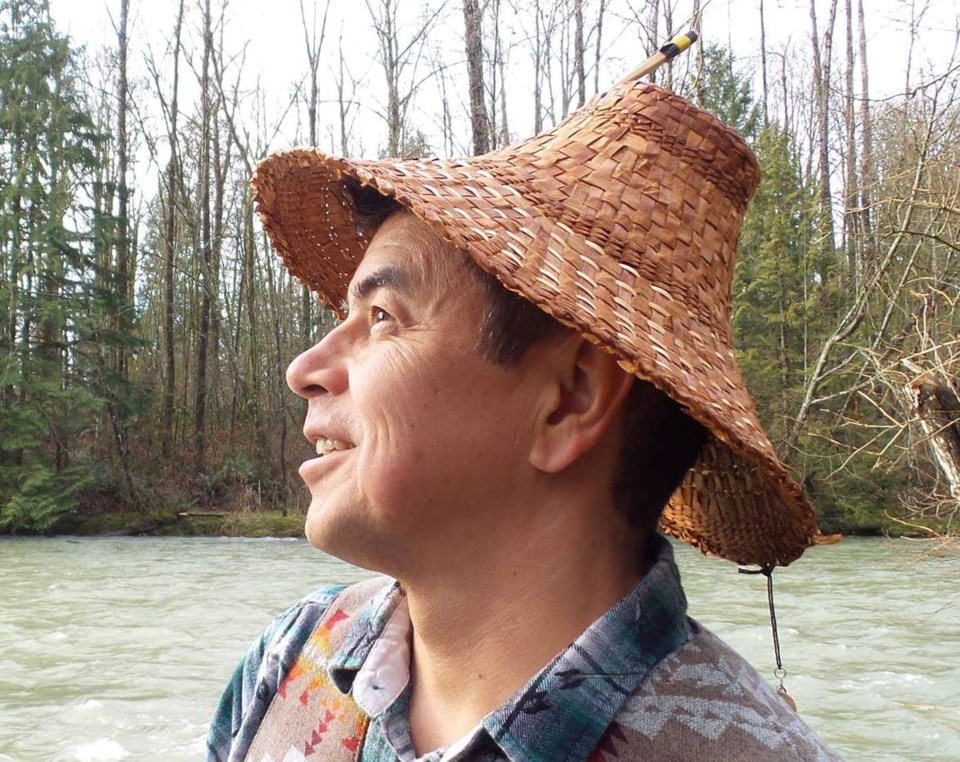
The KFN Aboriginal title claim is scheduled to be heard in court about a year from now. But these types of litigations are very expensive and KFN’s opponents in the case — the province, Metro Vancouver and Port Coquitlam — have deep pockets.
The litigation has been so expensive, Hall said in his affidavit, that chief and council need the revenue that would be generated from the business park to advance the trial while at the same time supporting their community’s social services, like overcrowded housing, basic maintenance and support for elders.
—
Read more about First Nations across the Tri-Cities:
Tsleil-Waututh & Metro Vancouver teaming up in 'historic' Belcarra Regional Park agreement
KFN collects trash in 'Great Shoreline Clean-up'
New chief for Kwikwetlem First Nation
KFN expands wellness centre plans
Kwikwetlem readies 90 acres for biz, medical site
Kwikwetlem First Nationa files land claim
Port Moody canoe race returns after 100-year hiatus
PHOTOS: Tsleil-Waututh join Kwikwetlem chief, paddle to protect the inlet
